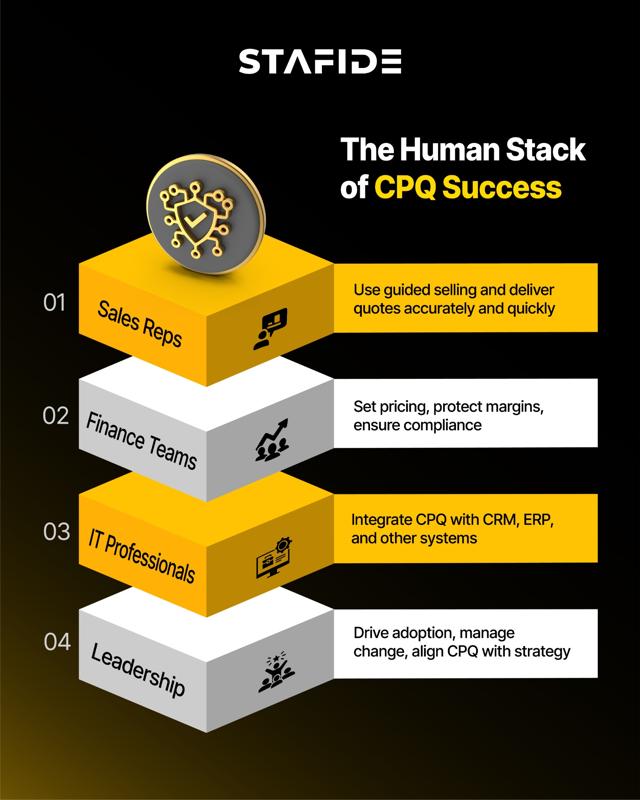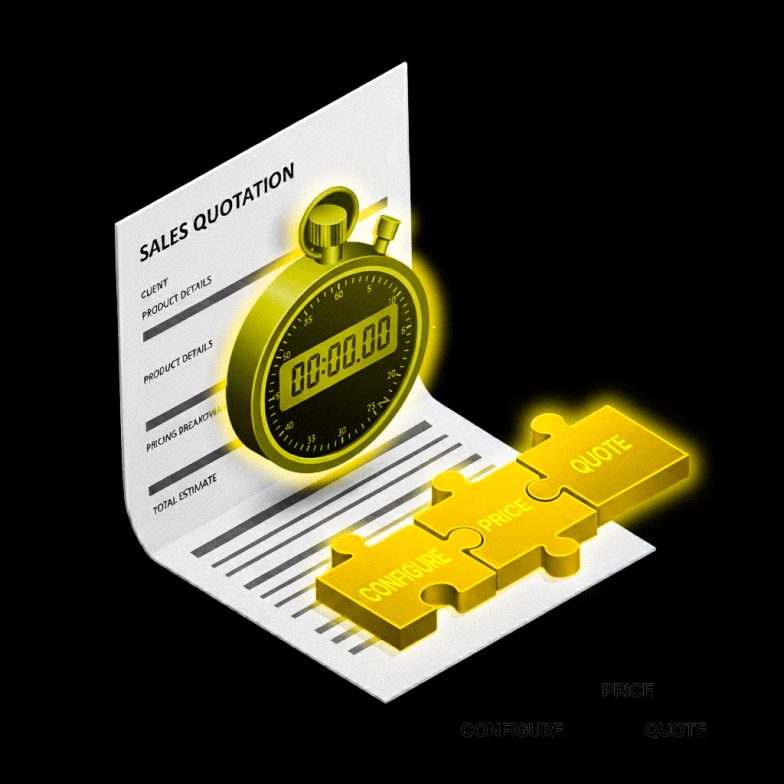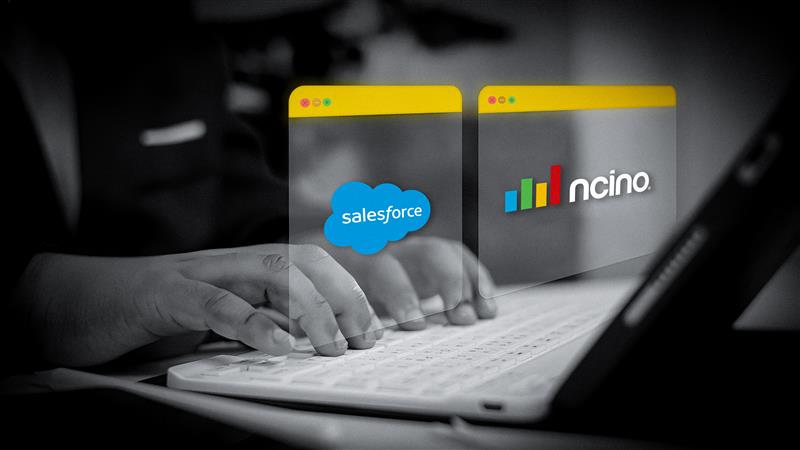Research shows that vendors who respond fastest with accurate quotes win up to 50% of sales, highlighting the critical importance of speed and precision in the quoting process
(Source: cpq-integrations.com).
It is often not product flaws, excessive pricing, or marketing missteps that cause lost sales-rather, the inability to provide accurate quotes promptly and in the correct format is frequently the deciding factor.
As Dinesh Kumar Gandhi, Technical Project Manager at STAFIDE puts it, “We don’t lose deals because our product isn’t good. We lose them because our quoting process makes us look unprepared.”
Quoting has evolved beyond numbers on a page. It now signals agility, reliability, and professionalism. Yet many companies struggle with delays, inconsistent pricing, configuration errors, and lost opportunities when competitors move faster.
That’s why excellence in quoting requires both powerful technology and skilled people. Technology provides automation and accuracy, while talent ensures adoption, governance, and integration into daily business. Together, they turn quoting from a vulnerability into a competitive advantage.
Hidden Risks of Manual Quotes
Manual quoting carries significant, often hidden risks that can quietly undermine growth. Revenue leakage is a primary concern: sales reps under pressure may apply inconsistent discounts or bypass pricing rules, and finance teams spend hours reconciling errors between spreadsheets and contracts. Over time, these small variances can materially erode profit margins.
Speed and accuracy are equally critical for deal outcomes. When the first flawless quote often secures the business, even a short delay or a minor error can result in lost opportunities. This is particularly true in industries like technology or manufacturing, where buying decisions involve multiple stakeholders and tight deadlines.
Customer perception is another key casualty. Slow or inaccurate quotes signal unpreparedness, undermining confidence and prompting clients to explore alternatives. Existing customers may quietly shift to competitors who consistently deliver on time, creating long-term churn.
Investing in effective CPQ solutions delivers measurable benefits that directly impact sales performance and operational efficiency. These risks are not theoretical. They have measurable impact. According to Salesforce, companies that use CPQ see an increase of 105% in their average deal size, reflecting more accurate, consistent, and efficient quoting across all transactions (Source: salesforce.com).
What Is CPQ?
CPQ (Configure, Price, Quote) software is a category of platforms that streamlines the quoting process. It helps sales teams:
- Configure: Select valid product or service combinations to ensure accuracy and compliance.
- Price: Apply rules, discounts, and approval workflows to maintain competitiveness and margin control.
- Quote: Generate polished proposals quickly, often with e-signature support.
By automating these steps, CPQ reduces errors, accelerates sales cycles, and improves revenue outcomes.
The CPQ Market Landscape
Several leading solutions dominate the CPQ market:
- Oracle CPQ – Deep integrations with CRM and ERP systems, AI-driven guidance, and enterprise scalability.
- Salesforce CPQ – Preferred by organizations using Salesforce CRM.
- SAP CPQ – Ideal for complex manufacturing or configuration-heavy scenarios.
- Others (e.g., PROS, Conga) – Focused on pricing optimization or niche requirements.
Each platform simplifies quoting and supports faster, more accurate sales processes.
Oracle CPQ as a Strong Contender
Oracle CPQ differentiates itself through seamless integration and AI-powered intelligence. It connects CRM systems (like Salesforce or Oracle Sales Cloud), ERP platforms (such as NetSuite), and e-signature tools to ensure quotes flow from opportunity to order without friction.
AI features like predictive pricing, guided selling recommendations, and automated approvals enable sales teams to identify the most profitable product bundles and accelerate decision-making. These capabilities help global organizations manage complex sales motions while optimizing revenue and compliance.
These capabilities translate directly into measurable business impact, as seen in real-world implementations.
Real-World Use Cases: From Delays to Deals
1. Global Fitness Equipment Manufacturer
A leading American fitness company specializing in cardiovascular and strength training equipment faced significant quoting delays. Prior to implementing Oracle CPQ, their quoting process took approximately 60 minutes per quote. With the new solution in place, quoting time was dramatically reduced to under 10 minutes, representing an over 80% reduction in time spent per quote. This enhancement significantly boosted sales efficiency, enabling faster response times and improving overall sales velocity.
The Oracle CPQ solution enabled the client to configure over 2,000 products across 50 diverse product lines, effectively addressing complex product mix challenges. In addition, the implementation reduced the need for quote approvals by 70%, streamlining the sales cycle and improving decision-making.
Source: ennVee Case Study
2. Manufacturing Equipment Distributor
A manufacturing equipment distributor reduced quote generation time from 3 days to 2 hours while increasing quote accuracy by 89%. Their field sales team can now create complex equipment configurations at customer sites, even in areas with poor cellular coverage.
Source: MobileForce Software
The case studies show what CPQ can deliver. To translate these gains into lasting business impact, organizations need more than technology. They need people aligned around its use. This is where the human layer takes center stage.
Human Layer: Unlocking CPQ’s Potential
Even the most advanced CPQ system is only as effective as the people using it. Think of it as a human stack, a set of roles and responsibilities that, when aligned, turn CPQ from software into a competitive advantage:
- Sales reps → Adopt guided selling, trust the system’s recommendations, and deliver quotes with speed and accuracy.
- Finance teams → Define and update pricing rules, safeguard margins, and ensure compliance across deals.
- IT professionals → Integrate CPQ with CRM, ERP, and other platforms, maintaining a seamless data flow and reliable performance.
- Leadership → Champion adoption, drive change management, and ensure the system evolves with business strategy.

What holds this stack together is a commitment to adoption and governance. Onboarding, audits, and continuous improvement ensure CPQ keeps pace with evolving business needs and consistently delivers ROI.
Conclusion: From Chaos to Control
Quoting may seem like a small piece of the sales cycle, but its impact on revenue, customer trust, and competitive advantage is enormous. Manual processes carry hidden threats: revenue leakage, lost deals, and frustrated customers.
CPQ addresses these risks by automating configuration, pricing, and quoting, integrating seamlessly with enterprise systems, and leveraging AI to optimize decisions. Coupled with a skilled team that understands and manages the system, organizations can transform quoting from a bottleneck into a growth engine.
Turn CPQ into a Competitive Advantage
Building that skilled team is where recruitment becomes a strategic advantage. Implementing CPQ requires specialized talent: solution architects, functional consultants, integration experts, administrators, and change managers. Without them, even the best system can fail.
Stafide specializes in connecting organizations with the professionals needed to deploy and manage platforms like Oracle CPQ effectively. From short-term projects to long-term hires, Stafide ensures your technology investments translate into measurable results.
If your organization is ready to move from quoting chaos to quoting confidence, visit STAFIDE to explore how we can help you build the talent foundation for a smarter, faster, and more profitable sales future.





